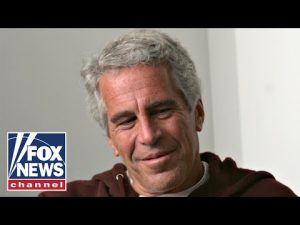In the ongoing debate surrounding gender identity and biological definitions, a curious shift in language has emerged. Once upon a time, the term “mother” was clear-cut, signifying a woman’s biological connection to her offspring. However, as society evolves, so too does our acceptance of broader definitions, such as including adoptive mothers. This change raises important questions about the implications of redefining terms related to gender and biology, particularly when it comes to the transgender movement and its claims regarding the nature of womanhood.
On one side of the argument, proponents of traditional definitions strongly assert that biology should remain paramount. They argue that distinctions between biological and adoptive relationships do not blur the lines of what a mother is. Adoptive mothers, for instance, do not take offense when someone cites a “biological mother.” Rather, they embrace a nuanced understanding of motherhood. Yet, the transgender movement asserts that the term “biological female” is somehow offensive or exclusionary. This raises an intriguing inquiry: if the definitions of motherhood can broaden without diminishing anyone’s experience, why is there a perceived threat when the same flexibility is applied to definitions of gender?
Critics of the transgender movement present a compelling standpoint centered on preserving biological truths. They insist that the integrity of biological definitions is essential. For instance, the biological process of reproduction overwhelmingly depends on male-female relationships, with alternative methods like in vitro fertilization comprising a tiny fraction of actual conceptions. In stark contrast to claims that affirming various gender identities poses a threat to biology, these critics argue that biology will persist unchanged. Whether some individuals choose to identify differently does not alter the unyielding realities of human reproduction.
By employing hypothetical scenarios, one can see the clarity of this argument even further. Imagine a world where all language surrounding gender and biology becomes fluid—where terms lose their established meanings, potentially leading to confusion in medical care or social policies. If “female” becomes synonymous with anything other than biological aspects, what happens when discussions about health issues specific to women arise? The fear is not merely about definitions; it is about the implications for rights, services, and social expectations that need solid footing on biological realities.
Ultimately, this discourse invites an essential examination of truth and its place in society. While social definitions of terms can evolve, it is critical not to discard the biological truths that form the foundation of human existence. A thoughtful dialogue should clarify that affirming transgender identities does not have to come at the expense of recognizing biological differences. Rather, both avenues can coexist, provided society engages with nuance and respect. The challenge remains to uphold these biological truths while navigating an ever-evolving landscape of language and identity, lest we lose sight of what makes us fundamentally human.







